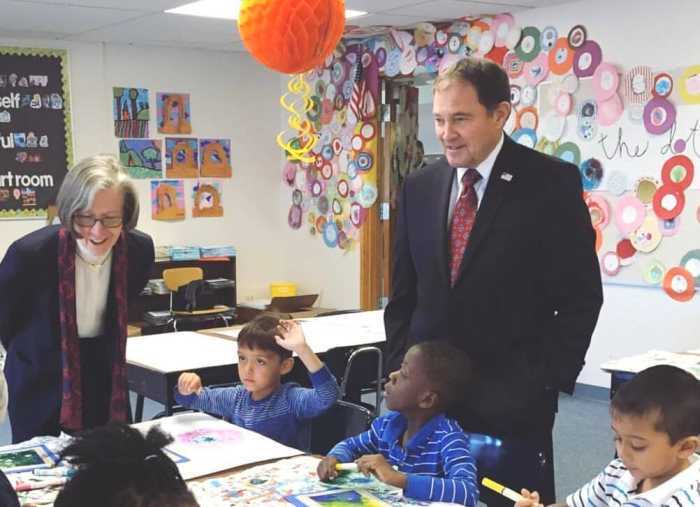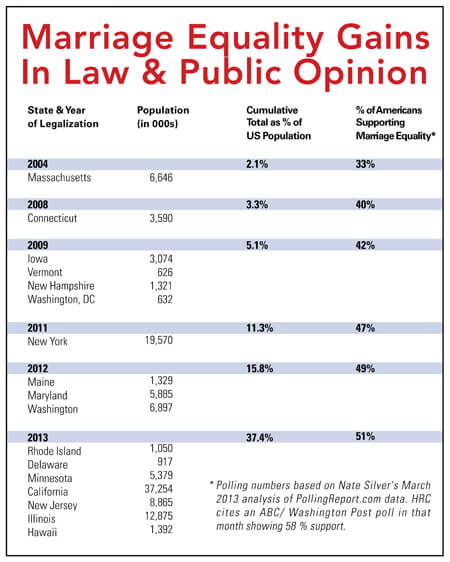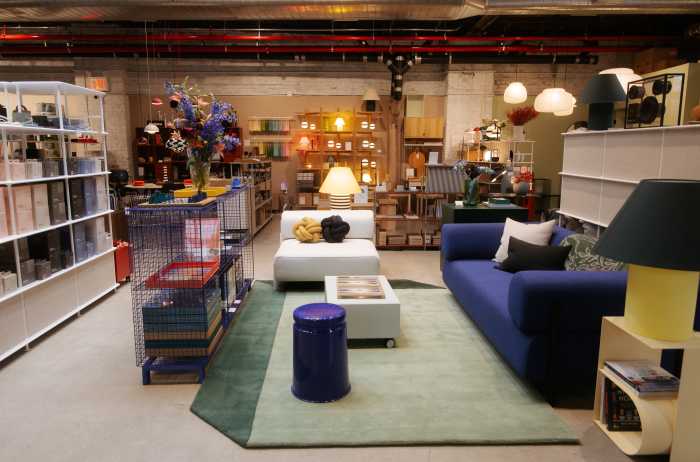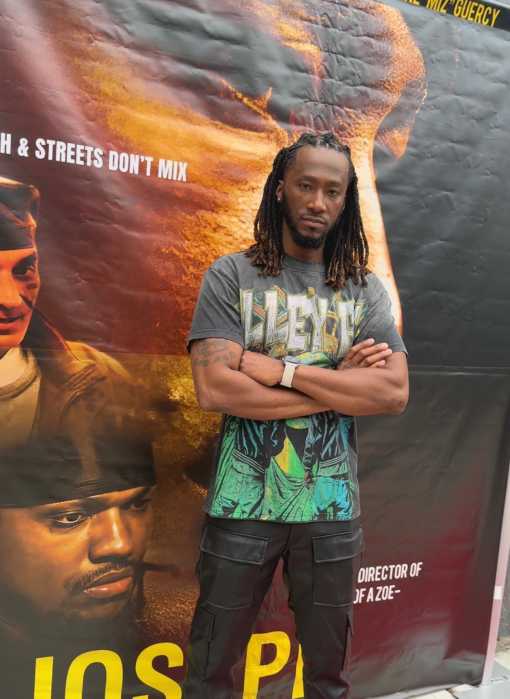A unanimous appeals panel of the New Jersey Superior Court has ruled that an out gay teacher forced to resign from a private boarding school is entitled to a trial on his claim that the school violated his rights under the New Jersey law barring anti-gay discrimination.
The case involves what the teacher, Ronald Savoie, says was private sexual conduct in a house — which he shares with his civil union partner — provided by the Lawrenceville School, a coeducational high school.
The April 13 ruling reversed a decision by the trial court that granted summary judgment in favor of the school.
New Jersey school must rebut claim forced resignation was based on anti-gay bias
Savoie was a teacher at Lawrenceville since 1982, and his partner, Richard Bierman, began living with him at the campus home in 1991. Savoie apparently had a good relationship with the headmaster, Michael Cary, who promoted him, placed him in important administrative positions, and wrote letters of thanks to him. Bierman, however, claims he experienced discrimination at the school, including a remark by the faculty dean, Catherine Boczkowski, that she did “not approve of your lifestyle.”
In 2002, a maintenance crew entered the couple’s home when they were absent to address a water main leak. While in the basement, the crew saw chains hanging from the ceiling, a tripod, KY lubricant, and “overstuffed” leather furniture. There is a factual disagreement over whether they also saw computers and a video camera in the basement. No report was made at that time to the school’s administration about what the maintenance workers saw. A year later, however, when a crew needed to return to the house for other maintenance work, the workers told the new director of building and grounds, Gary Skirzinski, they were “uncomfortable” doing so.
Skirzinski told Boczkowski , the dean, that the crew reported that “there were shackles hanging from the center of the room around some sort of table that had newspaper directly under it and there were five work stations set up along [with] a tripod, video equipment, a TV, a bed with mirrors, a café table with some chairs, very dark or black draperies surround[ing] the room and the ceiling painted black as well as some lighting that might have suggested theater lighting.” According to Skirzinski, they also said they saw latex gloves and diapers in an open closet and videocassettes around the TV. Later in depositions, the maintenance employees differed on some of these details.
Concerned that Savoie and Bierman were making sex videos, Boczkowski took the matter to Cary, the headmaster, who concluded that the basement was set up for fisting activities, that group sex might be occurring there, and that these activities were “not private.” When he consulted with some members of the board of trustees, they cautioned him to “be very careful” and to “avoid being overly intrusive” into Savoie’s “private life,” but said he should investigate whether students or other employees were involved in Savoie’s activities. It didn’t matter whether Savoie was gay or straight, they said; the school should “apply the same standard” and determine “whether the conduct went beyond the bounds of private conduct in the basement or whether it went out either onto the Internet or in a more public forum.”
Cary says the trustees told him Savoie’s conduct posed a “risk to the name and reputation of the school” and that he should be discharged if he had put sexual images on the Internet. Though Cary consulted the school physician and its counselor, who had nothing negative to say about Savoie, and asked Boczkowski to have Skirzinski confirm the maintenance workers’ accounts, there is no indication that anybody inspected Savoie’s basement before Cary and Boczkowski confronted him the following day.
Accounts from that meeting differ.
Based on “notes” he made during the meeting, Cary asserts that Savoie admitted that “images” had been transmitted “via the Internet,” while Savoie says he made no such admission. What is not disputed is that Cary had prepared a letter of resignation for Savoie to sign before the meeting took place, and that without further investigation, he told Savoie that if he did not resign immediately he would be discharged. Savoie signed the letter, but attempted to withdraw his resignation the next day.
Boczkowski responded in writing, rejecting Savoie’s change of heart and asserting he had admitted “that you videotaped sex acts in the basement of your housing at Lawrenceville and sent pictures of these acts over the Internet.” She demanded he preserve all the apparatus in the basement and give the school access to his computers. Subsequent forensic analysis of the computers yielded some sexual images, which the court characterized as too indistinct to identify who was participating.
During discovery for the lawsuit, the school sought “plaintiff’s financial records, including bank statements, credit card information and income tax returns; electronic data stored on plaintiff and Bierman’s personal computer; and communications between plaintiff and Bierman.”
Savoie later complained that the trial court failed to honor his civil union partner’s spousal privilege against offering testimony against him, but the appellate court found no indication that was true. Still, its decision specifically noted that spousal privilege is available to civil union partners under New Jersey law.
Savoie’s own discovery requests were also extensive, bringing to light numerous instances of misconduct, sexual and otherwise, by other faculty members who did not suffer discipline or forced resignations. In one case, Boczkowski failed to report her knowledge that a faculty member had resumed an adulterous heterosexual affair after being warned he could be terminated if he did so.
The trial judge found that although Savoie had alleged facts sufficient to state a “prima facie case” of discrimination, the school adequately rebutted the case by showing that Cary believed in good faith that Savoie had engaged in conduct that put the school’s reputation at risk. Since Cary promoted and praised Savoie for years after Bierman moved in with him, the judge evidently believed Savoie was forced to resign not because of his sexual orientation or private conduct, but rather due to Cary’s conclusion that Savoie was distributing sex tapes he made on the Internet to the detriment of the school’s reputation.
Savoie, however, successfully argued to the appeals panel that he had alleged sufficient facts to raise questions about whether the school’s stated rationale was merely a pretext for anti-gay discrimination. He emphasized Boczowski’s attitude about the couple’s “lifestyle” and claimed that she and Cary acted on stereotypes about gay men and sex. Savoie also pointed to other staff members whose misconduct did not trigger sanctions.
The court of appeals agreed that Savoie’s case deserved to be resolved only after fact-finding in a trial. Given that the case has dragged on for nearly a decade and that Savoie’s remedy if he wins could be an escalating amount of back pay, the appellate finding could lead Lawrenceville to settle the case.

































